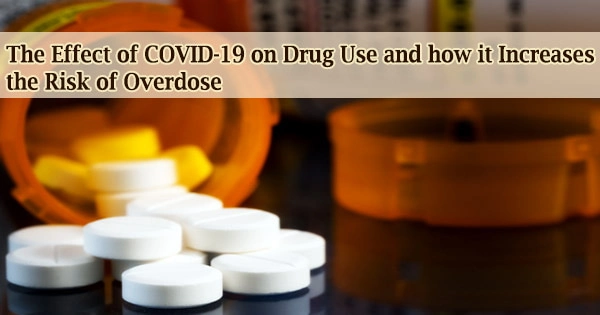According to surveys and interviews with people in rural Illinois that were recorded for a new study in Addiction Science and Clinical Practice, the COVID-19 pandemic has disrupted the lives of drug users in ways that hurt their mental health and changed drug use behaviors, increasing their risk for overdose.
Overdose deaths in the United States exceeded 100,000 during the calendar year ending in April 2021 as a result of the COVID-19 pandemic’s spike in drug overdoses.
Researchers are starting to sort out how the pandemic and measures to stop the virus from spreading. Such stay-at-home orders may have contributed to this rise in fatalities, from interruptions to harm reduction initiatives to isolation and deteriorating mental health.
Given that many rural communities have higher rates of opioid and methamphetamine use and already have limited access to drug treatment and harm reduction programs, people who use drugs and live in rural areas may be disproportionately affected by changes brought on by the epidemic.
The stigma associated with drug use may be more intense for those who use drugs in rural regions, which may increase the risk that they may use drugs alone and put off seeking medical attention.
The researchers attempted to comprehend drug users’ experiences during the COVID-19 pandemic and how disturbances at the structural and community level can increase people’s risk of overdosing through a series of questionnaires and interviews with drug users in rural southern Illinois.
Our findings suggest that structural and community issues during the pandemic increased anxiety, depression, and loneliness on the individual level. Drug use patterns also changed, with many talking about fear of fentanyl and increased access to it. All of these factors are likely to increase overdose risk.
Suzan Walters
Between August 2020 and May 2021, the researchers surveyed 50 people who take opioids or inject medications without a prescription and interviewed a smaller group of 17 people in-depth.
“We know that there has been a tragic increase in overdose deaths during the pandemic. Our study provides insight into why and how there have been more overdose deaths,” said Suzan Walters, research assistant professor at NYU School of Global Public Health and a researcher with NYU’s Center for Drug Use and HIV/HCV Research (CDUHR).
People who use drugs reported worsening economic situations in a region already plagued by widespread poverty and poor mental health throughout the pandemic, much like the overall community.
Due to layoffs, disruptions to their work in service industries, and a lack of suitable positions, just 38% of participants felt sure that they could keep a consistent income during the epidemic. Participants also mentioned that housing and food problems were made worse by the outbreak.
Numerous participants claimed that the epidemic had negatively impacted their mental health. Three-quarters of poll respondents said that they had felt more tense or worried, more than half said they had felt more sad, and almost half said they had felt lonelier.
Increased substance usage is linked to anxiety and depression, which can raise the risk of overdose. Additionally, participants discussed how the epidemic altered their routine drug-use habits.
According to two-thirds of survey participants, obtaining medications was more challenging during the pandemic, and more than half expressed concern that they would soon acquire a harmful batch of tainted medication.
Notably, half of those who responded to the study claimed they were more likely to use drugs alone now than they were before the pandemic, which can raise the danger of an overdose.
The interviews revealed a new trend of fentanyl “beans” or “buttons” consumption, which were described as little capsules filled with the drug. In comparison to heroin, which became more difficult to obtain during the epidemic, participants claimed that fentanyl was less expensive and more accessible.
“Our findings suggest that structural and community issues during the pandemic increased anxiety, depression, and loneliness on the individual level. Drug use patterns also changed, with many talking about fear of fentanyl and increased access to it. All of these factors are likely to increase overdose risk,” said Walters, who is also an affiliated faculty at NYU Langone’s Center for Opioid Epidemiology and Policy (COEP).
The researchers advise tackling wider systemic and community issues, such as increased access to economic opportunities and lowering stigma associated with drug use, in addition to ensuring that individuals have access to resources and services at the individual level.
Additional study authors include Rebecca Bolinski, Stacy Grundy, and Wiley Jenkins of Southern Illinois University; Ellen Almirol, John Schneider, and Mai Pho of the University of Chicago; Scott Felsher of the Community Action Place, Inc.; Samuel Friedman of CDUHR and NYU Grossman School of Medicine; Lawrence Ouellet of the University of Illinois Chicago; and Danielle Ompad of CDUHR and NYU School of Global Public Health.
The work was funded by the NIH Clinical and Translational Science Awards Program (UL1TR001445) and National Institute on Drug Abuse (K01DA053159, P30DA01104, T32 DA007233-31, R25DA026401, 4UH3DA044829-03).
















